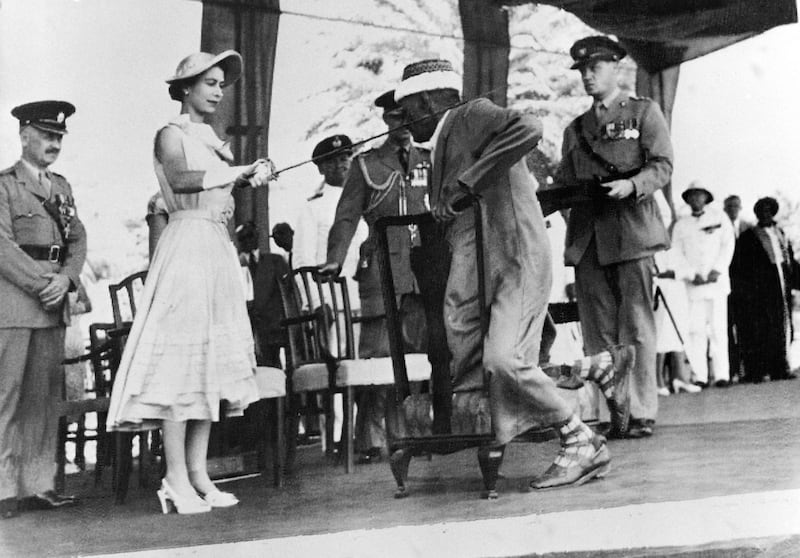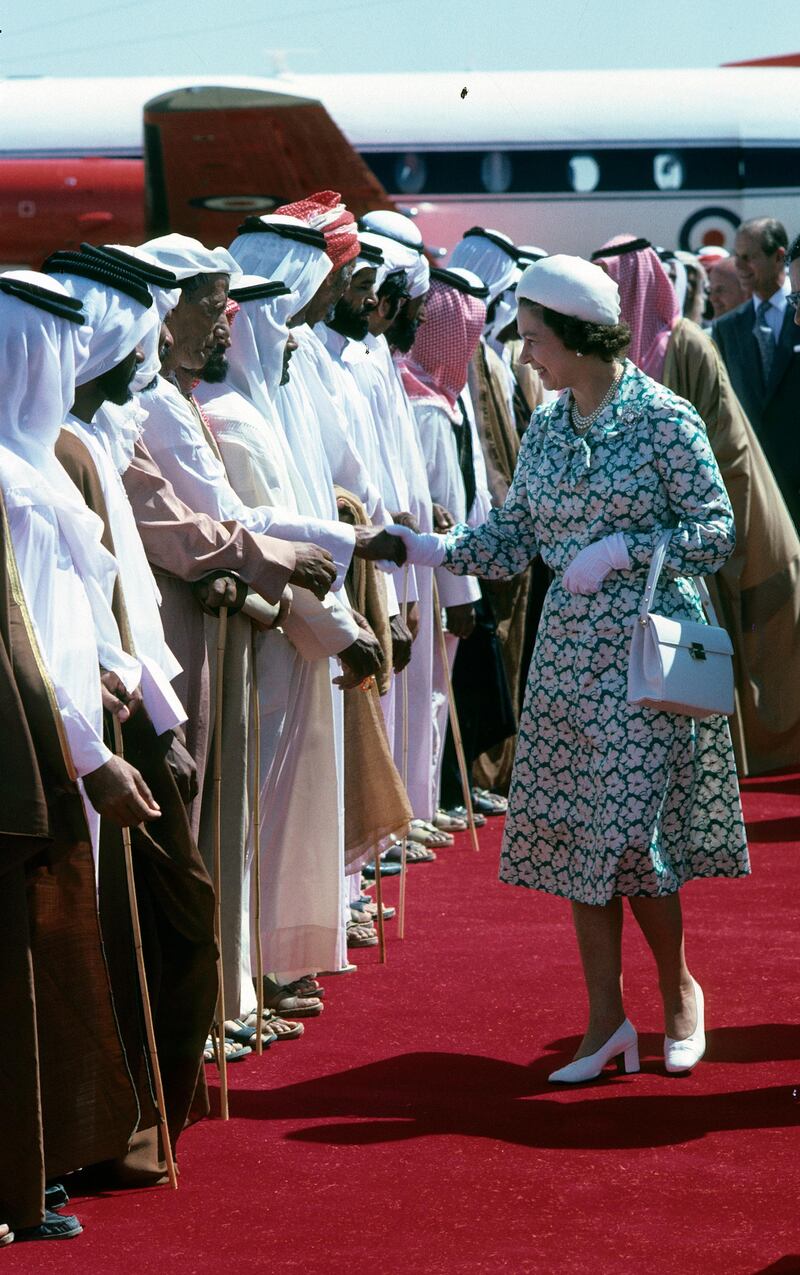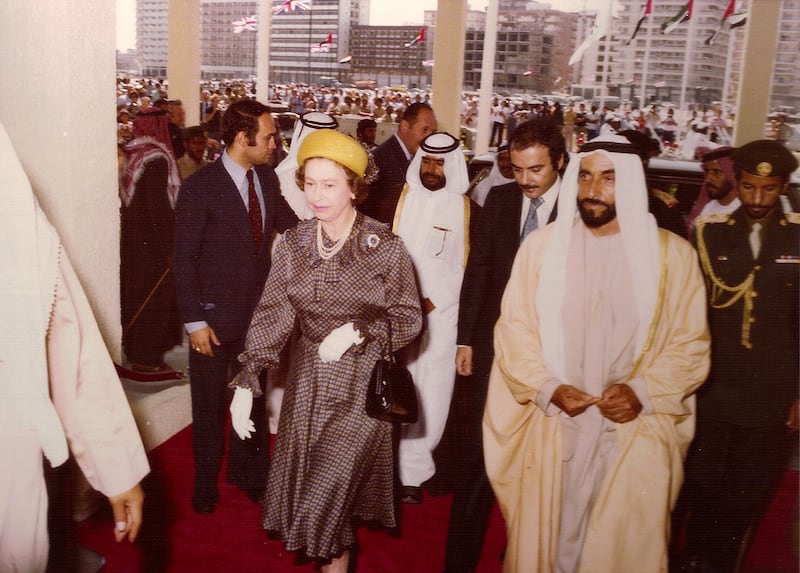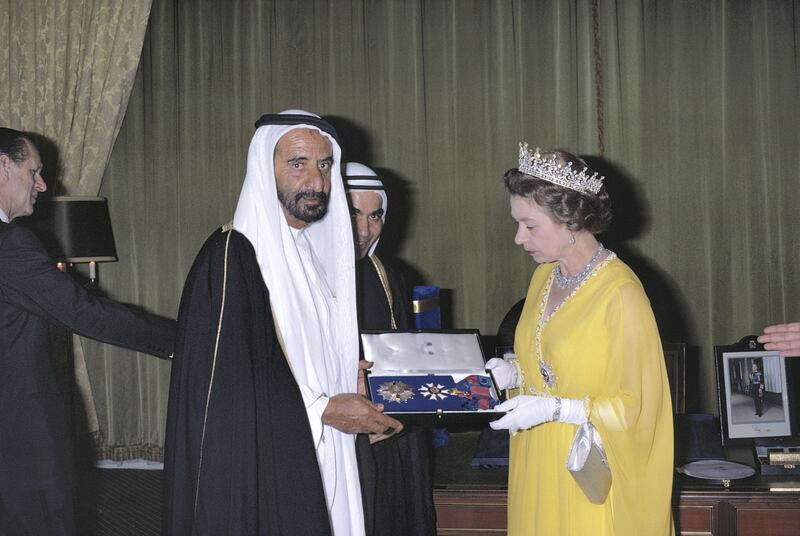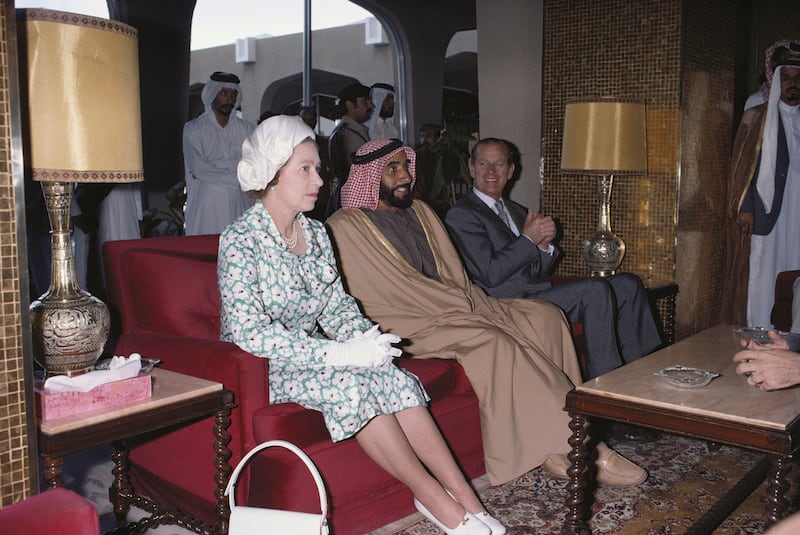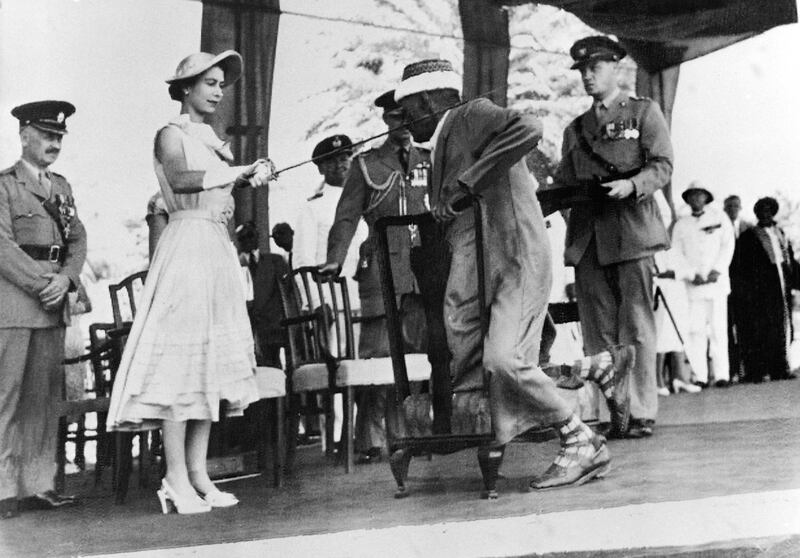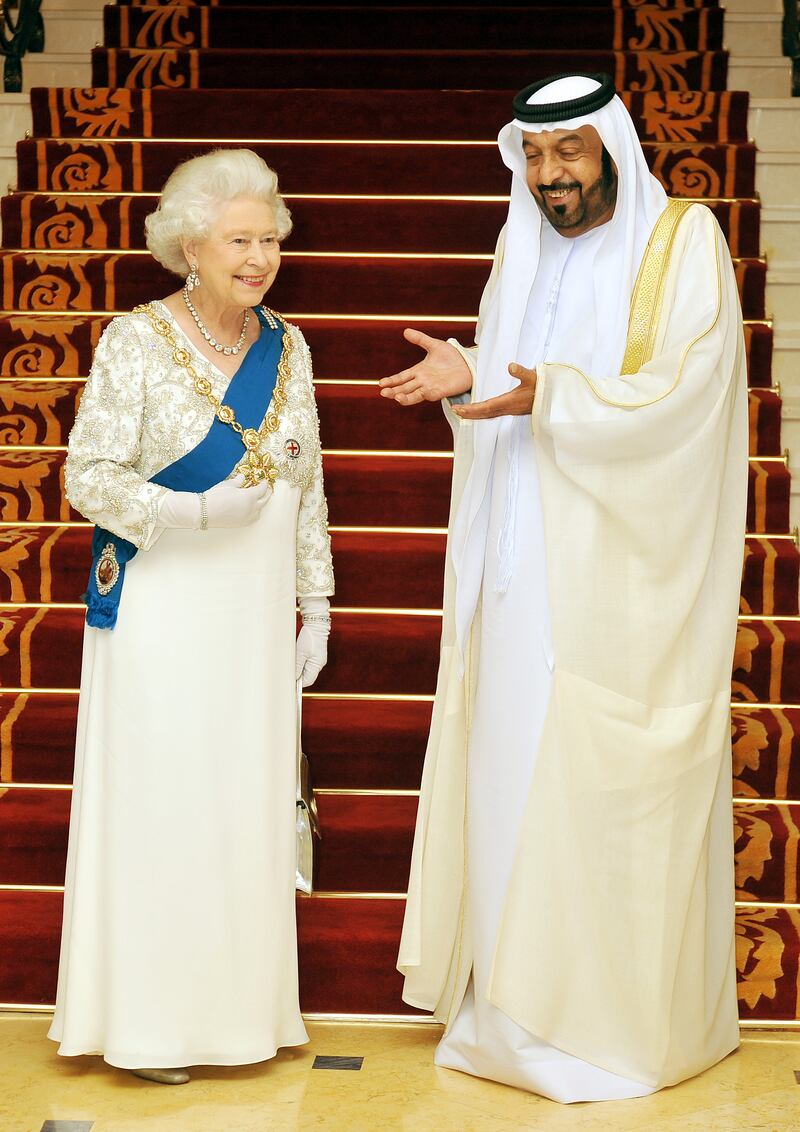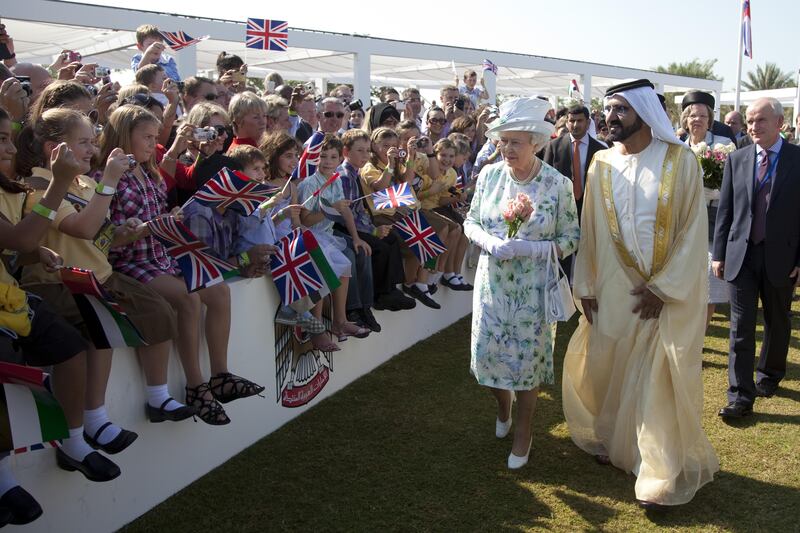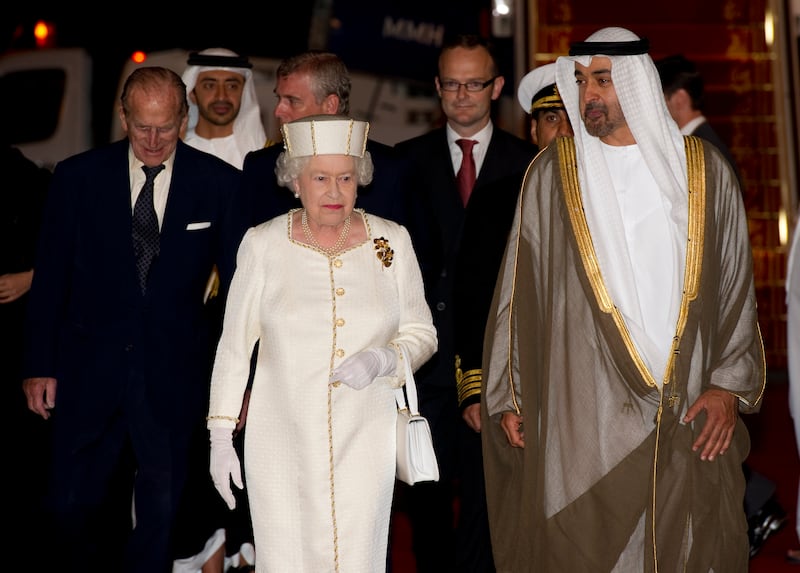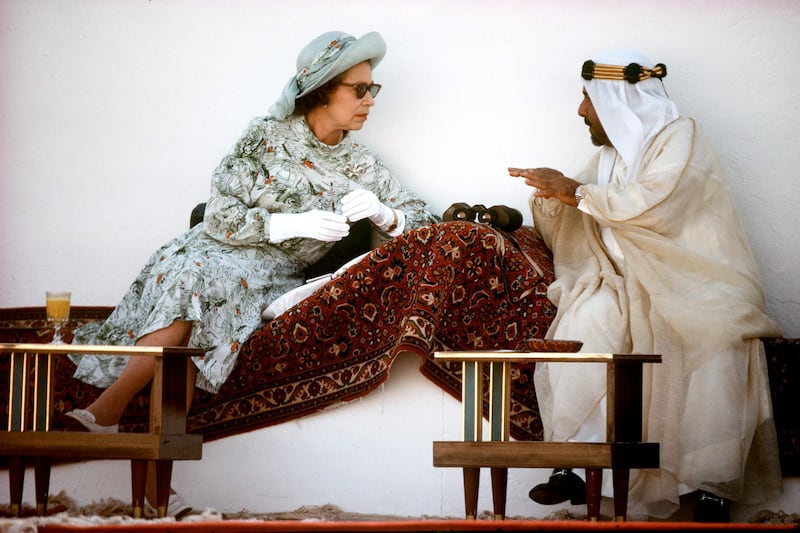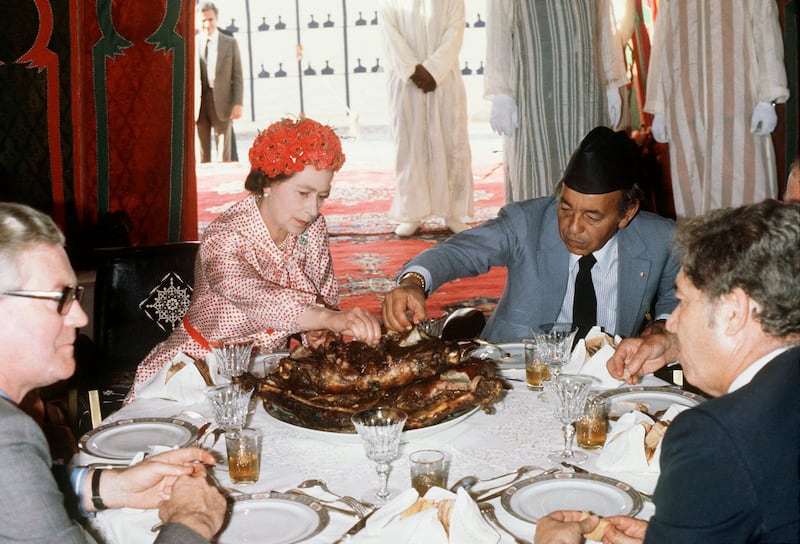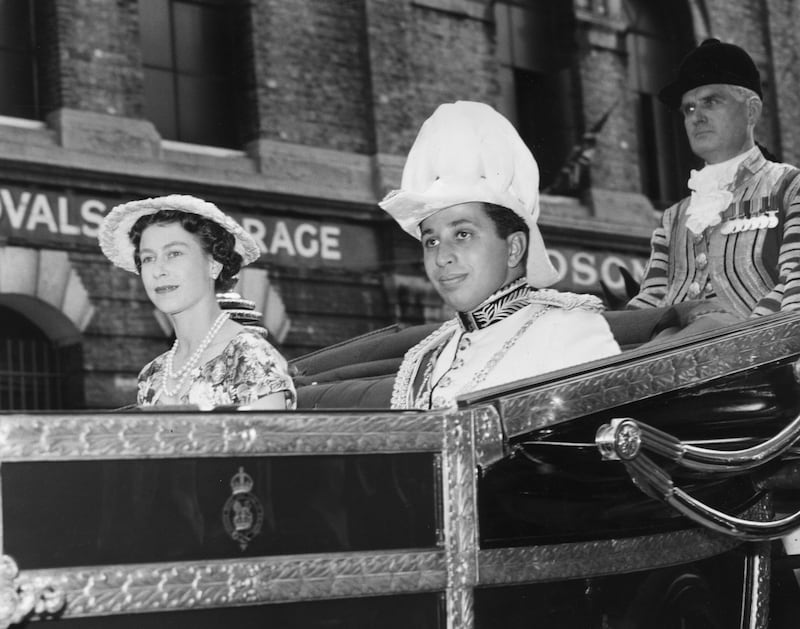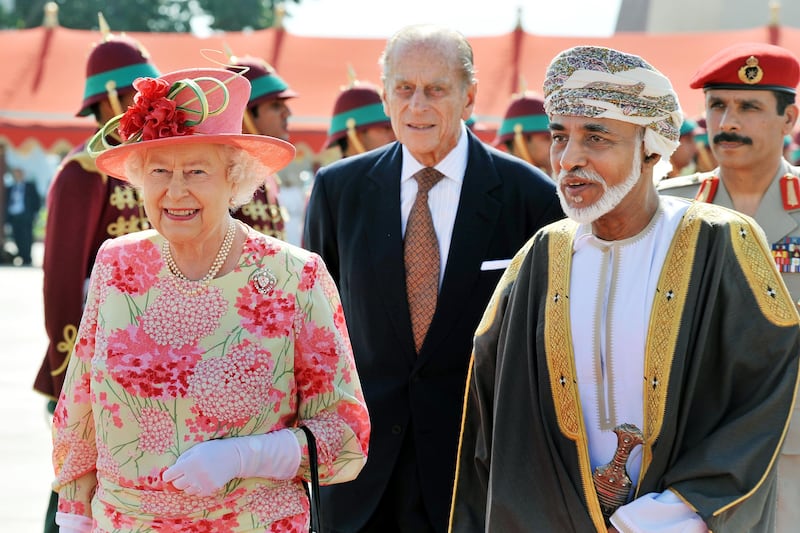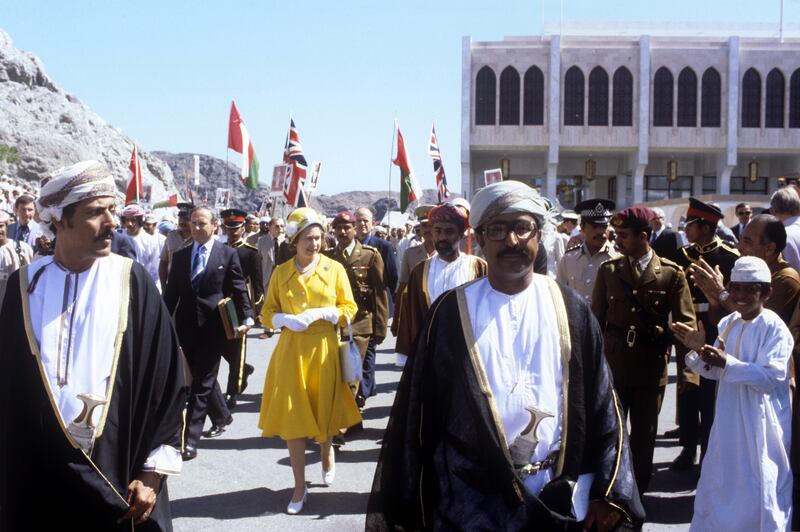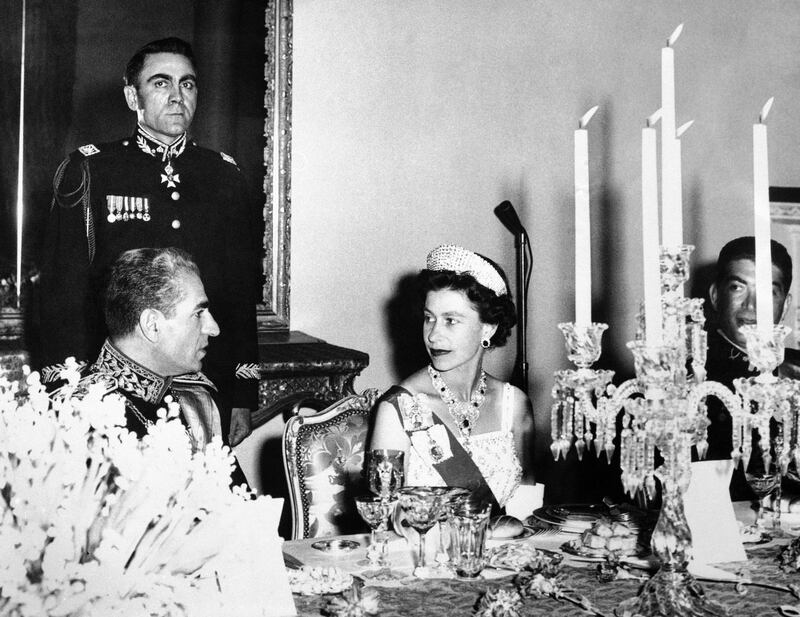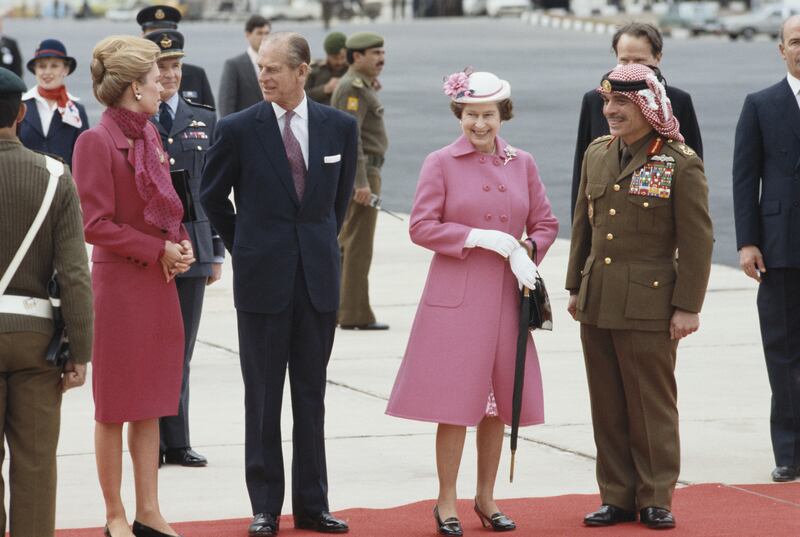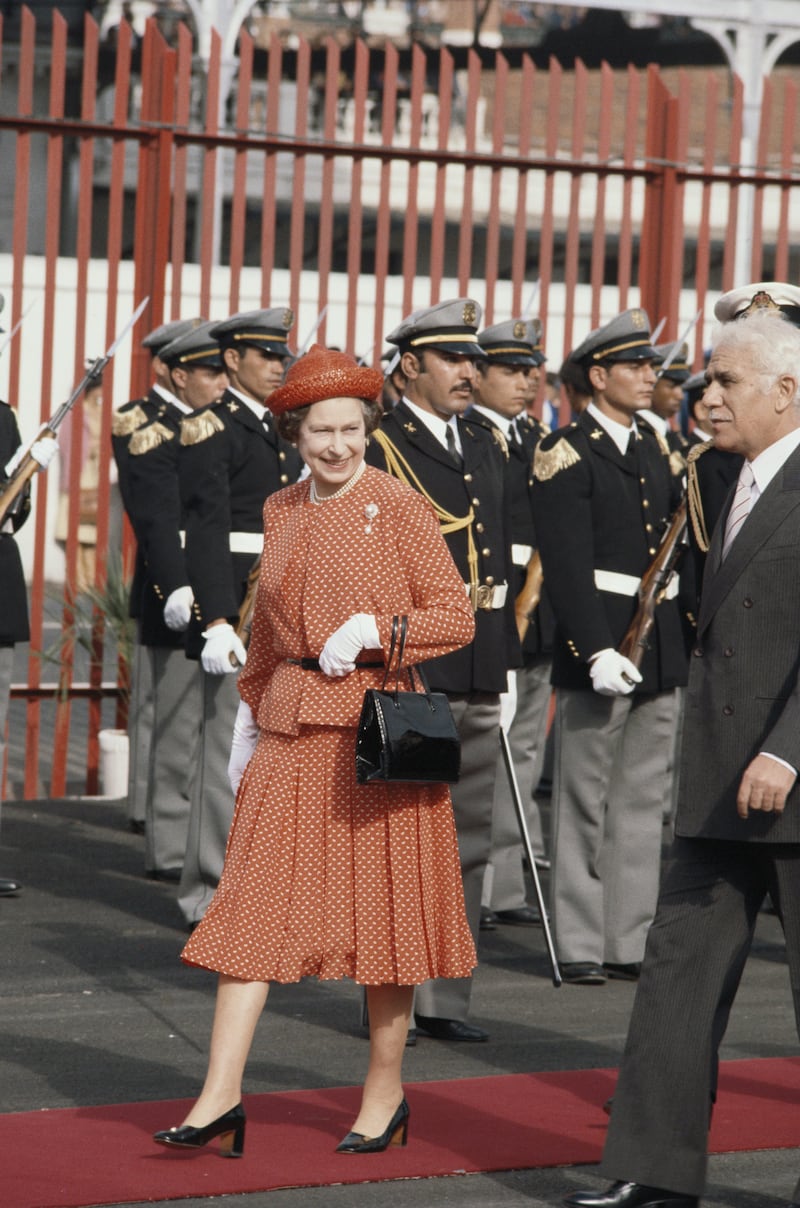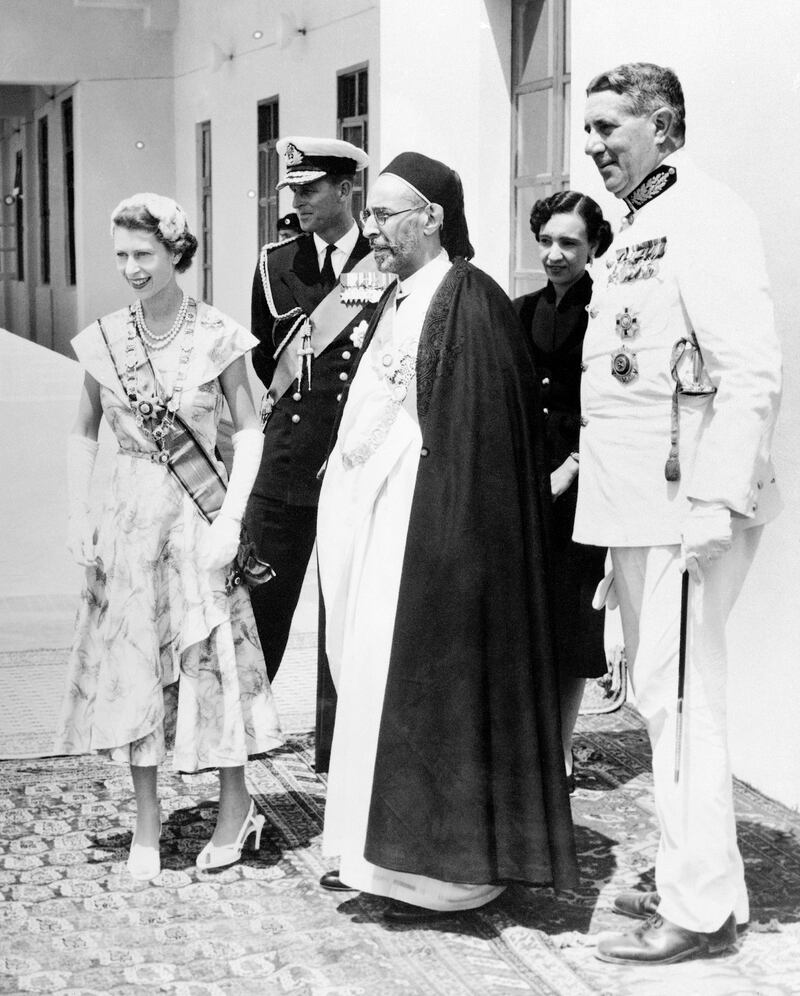Just two years into her reign, a young Queen Elizabeth II and her husband the Duke of Edinburgh left the UK for her first and longest Commonwealth tour as monarch. It lasted from November 1953 until May 1954, covering 44,000 miles and stopping in the West Indies, Australasia, Asia and Africa.
Towards the end of her epic trip, the royal ship S.S. Gothic docked in Aden for a brief visit.
South Yemen was a British protectorate at the time, with the northern part being an Imamate. By 1968, Yemen was free of colonial shackles and later formed into one republic.
Queen Elizabeth’s April 1954 visit saw the royal couple alight at Prince of Wales Pier where they were greeted by the Governor of Aden, Sir Tom Hickinbotham, and other British dignitaries.
The pair travelled in an open-top car from the pier to an enclosure nearby where they watched a military parade featuring the RAF, Aden Protectorate Levies, Armed Police, Government Guards, Hadhrami Bedouin Legion, and Somaliland Scouts.
Speeches were made in Arabic and English, and the queen knighted Air Marshal Sir Claude Pelly Commander-in-Chief of the RAF in the Middle East, and Abu Bakr bin Sheikh Al Kaff for services to peace in Hadramaut.
Sayyid Abu Bakr reportedly leant on a chair as his Muslim faith ruled out kneeling in front of the monarch.
Thousands turned out to see Queen Elizabeth.

“A vast crowd congregated along the royal route from the harbour to the parade ground, while, despite the intense heat, many others occupied all the vantage points for the witnessing of the ceremony,” London’s Sphere newspaper wrote of the visit.
Sultan Ghalib Al Qu'aiti, 74, remembers the day well. His grandfather, Sir Sultan Saleh bin Ghalib Al Qu’aiti, attended the welcome ceremony,
“She was received by large crowds of Adeni people who greeted her everywhere she went. She listened to a speech of welcome in Arabic made on behalf of the Protectorate chiefs by my grandfather … who presented Her Majesty with 100 tins of the best Hadhrami honey from Wadi Duan,” Mr Al Qu'aiti told The National, reflecting on a key moment in the Queen's 70 years as British head of state, being celebrated this weekend in the UK.
Abdullah Khalil, 82, says he remembers the buzz of the visit as he took up a position among the crowds of spectators.
“She was warmly received by huge crowds of people gathered near the pier and the clock tower in Attawahi city. The area surrounding the hotel was decorated with flags and banners hailing the queen and the prince,” Mr Khalil said.
“It was such a historical day. I still remember how excited I was that day because of the good life we were living at that time.”
A small bronze plaque still marks the spot of the Al Jumhuriyah hospital where the queen laid the foundation stone in 1954. The clinic remains open, albeit with a change of name in 1967, despite a huge bombardment by the Houthi rebel group in 2015.
The hospital was reopened after a UAE-funded restoration project, but has struggled to treat patients amid a six-year civil war.
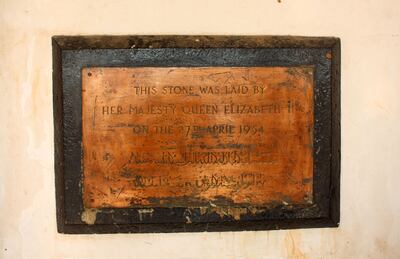
“The hospital isn’t maintained or air-conditioned,” nurse Zubeida Said told AFP in March. “There are leaks in the bathrooms. The building is old and dilapidated.”
The hospital is a microcosm for Yemen itself.
Despite the clear negatives of colonialism in the country, Yemen’s current destruction and devastation has left some longing for the era of British control.
“The Aden which Queen Elizabeth visited in 1954 doesn't exist today,” Mr Khalil said.
Historian Nagmi Abdulmajid said during British control of Aden, the region was cosmopolitan and contained the second busiest harbour in the world. The queen’s visit even sparked a construction boom.
“This is why people miss the British not just in Aden but in the other countries colonised by them in the East " he said.
As a fragile truce holds between the Houthi rebels and the internationally-recognised government, Yemenis will be hoping to celebrate their future once more.
